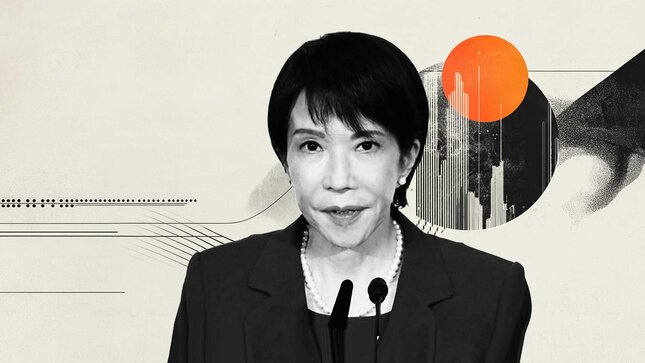The foreign exchange market (also known as FX and Forex) has neither a physical location nor a central exchange. The entire market is run electronically and continuously over a 24-hour period, from 22:00 GMT on Sunday until 22:00 GMT Friday. Within these hours, trading is carried out through networks of banks, dealers and brokers who trade currencies between each other at agreed prices and at rapid speed. There is more money transacted daily for foreign exchange purposes than for any other asset class. This fact, together with the ease with which Forex can be traded makes it a favourite with speculators around the world.
The importance of liquidity
The Forex market is extremely liquid, particularly the major trading pairs such as EURUSD, USDJPY and GBPUSD. Large trading volumes can often be transacted with very little effect on price. From the perspective of a trader, liquidity determines how easily one can transact with a relatively small change in price. High liquidity makes it very easy for anyone to buy and sell currencies. As such, Forex has been referred to as the market closest to the ideal of perfect competition, notwithstanding intervention by central banks. Most of the trading volume comes from traders (both individuals and organisations) that buy and sell based on intraday price movements, with pure speculation reckoned to account for 90% of all trading. But while the overall FX market is very liquid, the market depth of a specific currency pair can shift quickly depending on the time of day and speculator involvement.
London still dominant
According to the Bank for International settlements (BIS), which is often described as the central banks’ central bank, London continues to dominate the world of Forex. The city’s convenient time zone and its grip on trading infrastructure and personnel mean the sector has emerged relatively unscathed from all the uncertainty that came in the aftermath of the 2016 UK referendum on membership of the European Union. The BIS said London’s share of daily volumes rose to 43% in 2019, up from 37% in 2016, while the US share shrank to 17% from 20%. In Asia, growing volumes in Hong Kong offset weakness in Singapore and Tokyo. Mainland China registered an 87% increase in trading activity which makes it the eighth-largest forex trading centre, up from thirteenth in 2016.
World’s reserve currency
The Forex market looks likely to continue to grow in terms of trading activity. But perhaps the biggest question to consider over the coming years is the degree to which the dollar manages to retain its status as the world’s reserve currency. Back in the 1960s, Valéry Giscard d’Estaing, then the French finance minister, called America’s ability to pay its bills in its own currency an “exorbitant privilege”. Today, more than 61% of all foreign bank reserves are denominated in US dollars, according to the International Monetary Fund. Many of the reserves are in cash, US Treasuries, or corporate bonds. Approximately 40% of the world's debt is denominated in dollars. The reserve status is based largely on the size and strength of the US economy, the dominance of the US financial markets and the fact that most energy products are traded in dollars. Former Chairman of the US Federal Reserve, Ben Bernanke, writes about the dollar’s reserve status and wonders why it has “retained its pre-eminence”. Despite large deficit spending, trillions of dollars in foreign debt, and the unbridled printing of US dollars, US Treasury securities remain the major safe haven for investors. The trust and confidence that the world has in the ability of the US to pay its debts have kept the dollar as the most redeemable currency for facilitating world commerce.
Losing faith?
As things stand, foreign creditors are prepared to accumulate dollars. This helps global trade run smoothly while simultaneously financing the US trade deficit, hence the “exorbitant privilege”. But what if dollar holders start to question the creditworthiness of the US? A flight from the reserve currency would see the global financial system go into meltdown. Periodically the market asks what would happen if China decided to sell some of its vast stock of dollar-denominated assets. That became an increasing concern as the US/China trade dispute took centre stage throughout 2019. If that were to happen, then other holders of US debt would soon follow suit. But for now, there are compelling reasons why the US dollar should maintain its reserve status. Ben Bernanke lists the dollar’s main benefits as liquidity (the US Treasury market is the deepest and most liquid in the world), the dollar’s continued ‘safe haven’ status, the US Federal Reserve being the most effective ‘lender of last resort’ and the stability of value thanks to low inflation since the mid-1980s. Given the sharp rise in inflation since the coronavirus pandemic, it could be argued that the dollar has lost some of this stability. But it remains attractive on a relative basis, as the current strength of the greenback against other major currencies demonstrates. There’s no doubt that the dollar’s fortunes will ebb and flow over the coming years. But the sheer size of the US economy compared to anywhere else, even given China’s stunning rate of growth, suggests that the dollar will continue to hold its reserve status for the foreseeable future.
What next?
All these years after the financial crisis of 2008/9, the world’s major central banks continue to take extraordinary measures in terms of monetary policy. Despite western central banks now preparing to tighten monetary policy to put a lid on rising inflation, interest rates (for most developed countries anyway) are at or near record lows. This loose monetary policy has seen equity markets, bond markets, property, and other hard assets soar in value. Some countries have also experimented with negative rates. At the beginning of this year, Switzerland had a negative base rate of -0.75% which has been in place since January 2015, while the Bank of Japan has held rates at -0.10% for over 6 years.
Conclusion
The Forex market won’t be relinquishing its position as the largest financial market anytime soon. It will remain popular with traders and speculators due to its liquidity and accessibility. The US dollar remains the world’s reserve currency and ultimate safe haven. Not only is the US economy the world’s biggest by a large margin, but also the most open. This could change of course. The trade war between the US and China and imposition of tariffs between the two countries saw the rise of protectionism. This in turn has seen China (the world’s largest importer of crude oil) encourage a move away from trading oil in dollars. Russia and the European Union have also made moves to reduce their dependence on the dollar for oil payments. This move could be derailed by Russia’s invasion of Ukraine, which could help cement the dollar’s standing as the world’s reserve currency. Certainly, the US won’t give up its role without a fight, so expect this to be a major undercurrent for Forex over the coming decade.
Financial spread trading comes with a high risk of losing money rapidly due to leverage. You should consider whether you can afford to take the high risk of losing your money.
Editors’ Picks

EUR/USD holds firm near 1.1850 amid USD weakness
EUR/USD remains strongly bid around 1.1850 in European trading on Monday. The USD/JPY slide-led broad US Dollar weakness helps the pair build on Friday's recovery ahead of the Eurozone Sentix Investor Confidence data for February.

USD/JPY keeps the red below 157.00 on intervention risks
The Japanese Yen sticks to its modest intraday recovery gains against a broadly weaker US Dollar on the back of speculations that authorities will step in to stem weakness in the domestic currency. In fact, Japanese officials stepped up intervention warnings and confirmed close coordination with the US against disorderly FX moves. This, in turn, triggered an intraday USD/JPY turnaround from the 157.65 region, or a two-week top, touched in reaction to Prime Minister Sanae Takaichi's landslide win in Sunday's election.

Gold remains supported by China's buying and USD weakness as traders eye US data
Gold struggles to capitalize on its intraday move up and remains below the $5,100 mark heading into the European session amid mixed cues. Data released over the weekend showed that the People's Bank of China extended its buying spree for a 15th month in January. Moreover, dovish US Fed expectations and concerns about the central bank's independence drag the US Dollar lower for the second straight day, providing an additional boost to the non-yielding yellow metal.

Cardano steadies as whale selling caps recovery
Cardano (ADA) steadies at $0.27 at the time of writing on Monday after slipping more than 5% in the previous week. On-chain data indicate a bearish trend, with certain whales offloading ADA. However, the technical outlook suggests bearish momentum is weakening, raising the possibility of a short-term relief rebound if buying interest picks up.

Japanese PM Takaichi nabs unprecedented victory – US data eyed this week
I do not think I would be exaggerating to say that Japanese Prime Minister Sanae Takaichi’s snap general election gamble paid off over the weekend – and then some. This secured the Liberal Democratic Party (LDP) an unprecedented mandate just three months into her tenure.
RECOMMENDED LESSONS
Making money in forex is easy if you know how the bankers trade!
I’m often mystified in my educational forex articles why so many traders struggle to make consistent money out of forex trading. The answer has more to do with what they don’t know than what they do know. After working in investment banks for 20 years many of which were as a Chief trader its second knowledge how to extract cash out of the market.
5 Forex News Events You Need To Know
In the fast moving world of currency markets where huge moves can seemingly come from nowhere, it is extremely important for new traders to learn about the various economic indicators and forex news events and releases that shape the markets. Indeed, quickly getting a handle on which data to look out for, what it means, and how to trade it can see new traders quickly become far more profitable and sets up the road to long term success.
Top 10 Chart Patterns Every Trader Should Know
Chart patterns are one of the most effective trading tools for a trader. They are pure price-action, and form on the basis of underlying buying and selling pressure. Chart patterns have a proven track-record, and traders use them to identify continuation or reversal signals, to open positions and identify price targets.
7 Ways to Avoid Forex Scams
The forex industry is recently seeing more and more scams. Here are 7 ways to avoid losing your money in such scams: Forex scams are becoming frequent. Michael Greenberg reports on luxurious expenses, including a submarine bought from the money taken from forex traders. Here’s another report of a forex fraud. So, how can we avoid falling in such forex scams?
What Are the 10 Fatal Mistakes Traders Make
Trading is exciting. Trading is hard. Trading is extremely hard. Some say that it takes more than 10,000 hours to master. Others believe that trading is the way to quick riches. They might be both wrong. What is important to know that no matter how experienced you are, mistakes will be part of the trading process.
The challenge: Timing the market and trader psychology
Successful trading often comes down to timing – entering and exiting trades at the right moments. Yet timing the market is notoriously difficult, largely because human psychology can derail even the best plans. Two powerful emotions in particular – fear and greed – tend to drive trading decisions off course.
